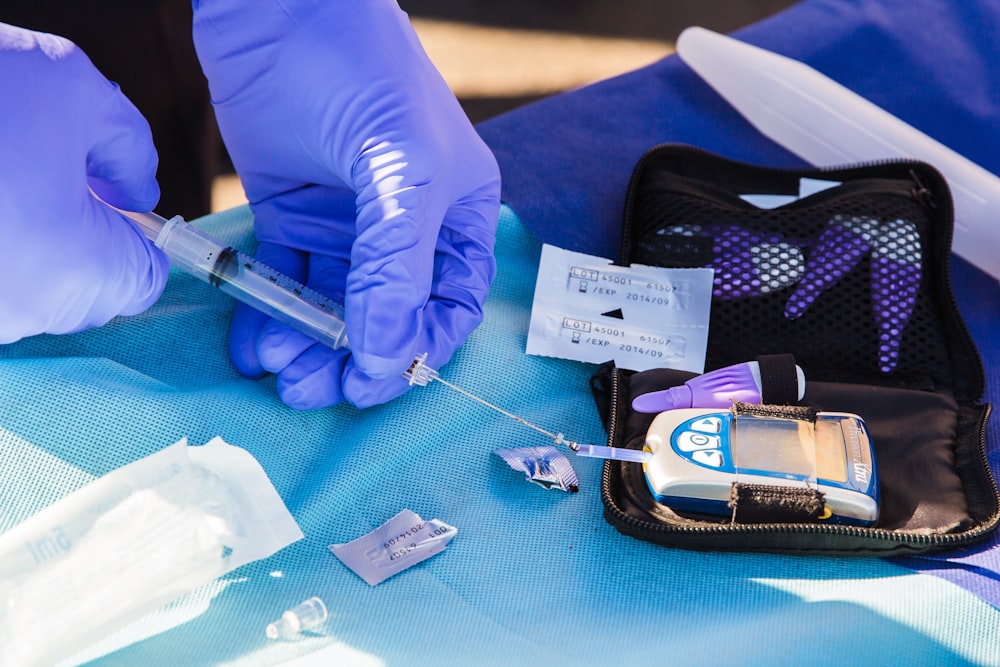Illness Prevention Strategies: How to Avoid Getting Sick

Getting sick in the winter or spring seems inevitable, and now we’ve got so much more to worry about than just the regular flu. It is not just doctors or nurses, but all of us get exposed to germs every day. So what is it that we can do for illness prevention? And how do we avoid getting sick?
Illness Prevention: Why is it important?
There are actually lots of things that can make us seriously ill, even besides the COVID-19 virus. And to live a healthier life, it is more important not to get sick at all than getting treated to be healthy. Like what medical professionals say, prevention is better than cure.
While it is common for many individuals to go to the physician when they are feeling unwell, identifying the risk factors for diseases is better. By knowing what you are at risk for and by going to a doctor for a regular check-up and health assessment, illnesses and injuries can be prevented early on. And by knowing what is normal for your health, you will be able to detect serious changes in later life.
Remember this, knowing a thing or two about illness prevention, will help you stay healthy, especially when everyone around you is getting sick.
Primary Prevention
The goal in this level of prevention is to avoid the development of disability or disease. This type of prevention includes activities such as health promotion. One typical example is when dentists encourage people to consume less sugar to reduce the risk of dental caries. Another example of a primary preventive measure in medicine includes the vaccination against infectious diseases such as measles, rubella, mumps, and polio.
Secondary Prevention
Secondary prevention focuses on early disease detection. It aims to prevent the emergence of symptoms, limit disabilities, minimize complications or worsening of the disease before it progresses and becomes severe. It also includes the detection of illnesses in asymptomatic patients by health screening or diagnostic testing to prevent the spread of transmissible diseases. Examples include screening for cancer and periodontal screening.
Tertiary Prevention
Tertiary prevention is more of a restoration of function and reduction of the complications associated with the disease. It aims to reduce the negative effects of existing and well-establish disease or illnesses and improve the quality of life of those with the disease. In medicine, examples include insulin (for type 2 diabetes) or hormonal therapy. In dentistry, tertiary prevention measures include fillings for dental caries and the use of bridges for missing teeth.
What else do you need to know about illness prevention?
Knowing different levels of prevention can be helpful. But, it is equally important to be aware of the signs and symptoms to help us identify possible medical problems.
What is the difference between signs and symptoms?
In a medical context, a sign is an objective manifestation, like your heart rate or blood pressure. On the other hand, a symptom is subjective. It usually involves what you feel like pain, weakness, dizziness, and other phenomena that arise from a disease or disorder.
Illness Prevention Strategies: The Secret to Avoiding Sickness
The so-called secrets to living a healthy life are not really secrets at all. One does not need a sip from some magical fountain of youth or elixir from an alchemist. You may laugh at it but, some ways to stay healthy are mostly common sense. For instance, you reduce the risk of bacteria or viruses transmission by handwashing or eating nutritious food.
Here are some illness prevention strategies, including tips and tricks for avoiding sickness:
1. Move your body
While it feels so much fun to stay on the couch and start movie marathons during this stay-at-home season, staying active can keep you more fit and healthy. In one study, researchers even say that by regularly exercising and keeping your body on the move, you:
- Are boosting your immune system, specifically your white blood cells that fight against illnesses like flu or common cold
- Help your body working against certain chronic diseases
- Keeps inflammation at bay
- Reduce the stress response that happens in your system which can make your feeling worse
2. Eat nutritious food
We cannot reiterate it enough—eat nutritious food, add fruits, and increase the amount of green leafy vegetables in your diet. They are rich in vitamins and minerals that your body needs to maintain a well-balanced diet. Furthermore, it helps boost your immune system.
3. Practice good hygiene
Limiting your contact to the causes of diseases like avoiding germs is the key to avoid getting infected. As we have mentioned previously, prevention is a lot better than looking for ways to get treated. Here are other preventive measures and various ways to practice good hygiene:
- Carry a hand sanitizer or any alcohol-based hand cleaner if you don’t have access to soap and water when you are outdoors.
- Cover your nose and mouth when sneezing or coughing.
- Disinfect surfaces that other people use (like work desks, doorknobs, toilet bowl flush handle, and remote controls.
- Do handwashing for at least twenty seconds, making sure you scrub all areas of your hand.
- Shower daily.
- Wash your hands before eating food, inserting contact lenses, preparing food, or performing any other activity that makes you touch your eyes, nose, or mouth.
4. Avoid sharing personal items
Lower your risk of contracting infections by avoiding germ transmission from person to person. Do this by keeping personal items separate, even between family members. Bacteria, viruses, and fungus can’t be seen with our bare eyes, and we won’t know if the items you share have them.
Some microorganisms even survive on various objects and surfaces for a day or more, which leaves germs a lot of time to be transferred and spread among people in the household. Just one infected glass for drinking water can pass germs that may cause illness to an entire household in the right setting.
Besides drinking glasses, personal items include any of the following:
- eating utensils
- hair combs
- toothbrushes
- towels
- razors
- shoes
If you suspect any contaminated items — especially toys or clothing that are shared between individuals — wash them in soapy water. You can use hot water if available, and when in doubt, you can opt to use disposable drinking cups, eating utensils, and towels.
5. Drink tea
For many centuries, drinking tea (especially green tea) has been associated with good health. Its high level of antioxidants is one of the reasons why many people turn to them. While most researchers focus on the better-known green teas, other types also offer many benefits.
6. Try to relax and not to worry too much
For thousands of years, medical professionals have suspected and studied the link between prolonged stress or worrying too much and physical illness. When you are constantly stressed or worried, the body's sympathetic nervous system continuously releases stress hormones like cortisol.
Cortisol helps our bodies fight inflammation and certain types of diseases. The constant release of this hormone “cortisol” in people who are chronically worried or stressed lessens its effectiveness. If the cortisol becomes less effective, body processes such as inflammatory response become troublesome, resulting in increased inflammation and disease development.
7. Drink lots and lots of water
Water is not only a simple, thirst-quenching liquid. Water is pure magic! From skin issues to a variety of health issues, an adequate amount of water intake every day can be a vital step towards healthy living. And if you do not enjoy drinking water because it may cause you to pee frequently, the benefits it offers are going to make you think again about it.
For one, water aids in keeping your skin hydrated, which results in lesser wrinkles and younger-looking skin. Other than that, drinking for at least eight glasses of water every day will surely keep your body hydrated, regulate your digestive tract, and prevent the formation of kidney stones.
8. Avoid drinking alcohol
Study shows that consuming alcohol can cause damage to the body’s dendritic cells, which are key components of the immune system. This means that an increase in alcohol consumption can suppress the immune response increasing a person’s exposure to bacterial, viral, and other types of infections.
9. Skip smoking!
One important advice is that you stop smoking as soon as possible. Smoking damages your body from the inside without even letting you know until signs and symptoms of lung disease appear. Furthermore, it does not only affect your breathing organs in the worst way but has unwanted effects on your other organs too.
Yes, quitting smoking is not very easy. Still, it is not very difficult either when you are ready to feel better, and once you are determined about it.
There are many ways to help you get over smoking one step at a time. There are nicotine patches that you can buy and other medications that might help. In any case, consult with your physician first to find the best way to stop this bad habit for a healthier life.
10. Take supplements that can strengthen your immune system
According to the 2015-2020 Dietary Guidelines for Americans, there are many nutrients that are under-consumed. In fact, it is not only Americans but people around the world experience nutrient deficiency too. And the reason is that people usually do not consume foods that contain all the nutrients needed by the body. These include vitamins (like A, C, D, E), and nutrients (like calcium, choline, magnesium, and potassium). And while supplements cannot replace food, they can provide nutrients that the body lacks.
So while your immune system is doing its job in keeping you well, you can also take supplements like immune system boosters to support your body’s first line of defense. Here is an immune system supplement that can be useful for your health especially during these troubled times:

Immune Support is a dietary supplement that can provide your body with the needed support for your immune system health. Made with natural products and ingredients; this supplement can promote healthy processes in your body.
Medical Disclaimer: Please Read!
This article, including all the images, texts, and other documents were created for informational purposes only. It is not intended to replace or be a substitute for professional medical diagnosis, advice, recommendations, or treatment. Always ask and follow the suggestions and orders of your primary physician or another qualified healthcare provider. If you have other questions regarding a medical condition or other matters related to this post, please book an appointment with your health provider. Never disregard or delay professional medical advice due to something you have read from any of the articles.
If you think that you may be experiencing a medical emergency, call your primary physician, call 911 immediately, or go to the nearest emergency center as soon as possible. Applied Science Nutrition does not recommend or suggest any specific physicians, products, tests, procedures, opinions, or other related information that may be mentioned on this website.
Reliance on any of the information provided by this website, including links to various case studies, research, educational sites, and other content is solely at your own risk. Furthermore, our company, Applied Science Nutrition, is not responsible for any of the claims of the external website links and education companies mentioned and included in the article.




